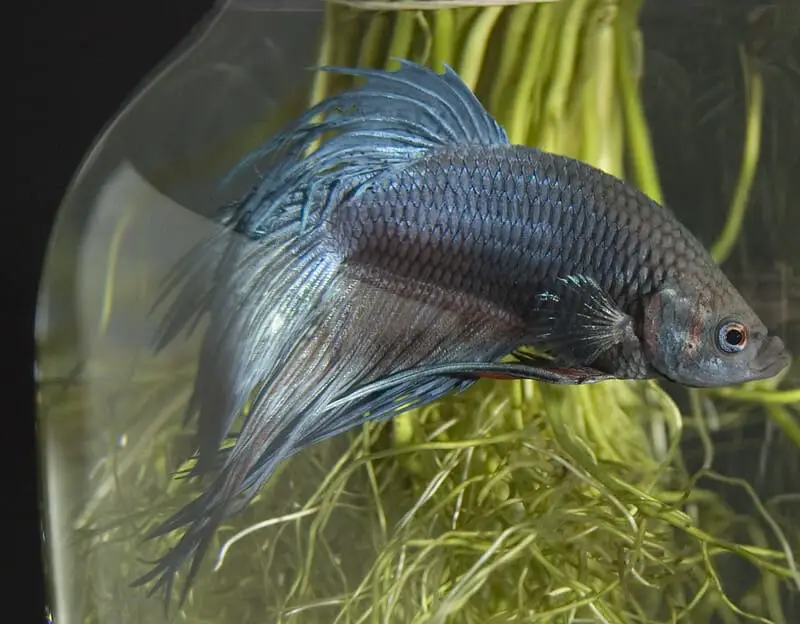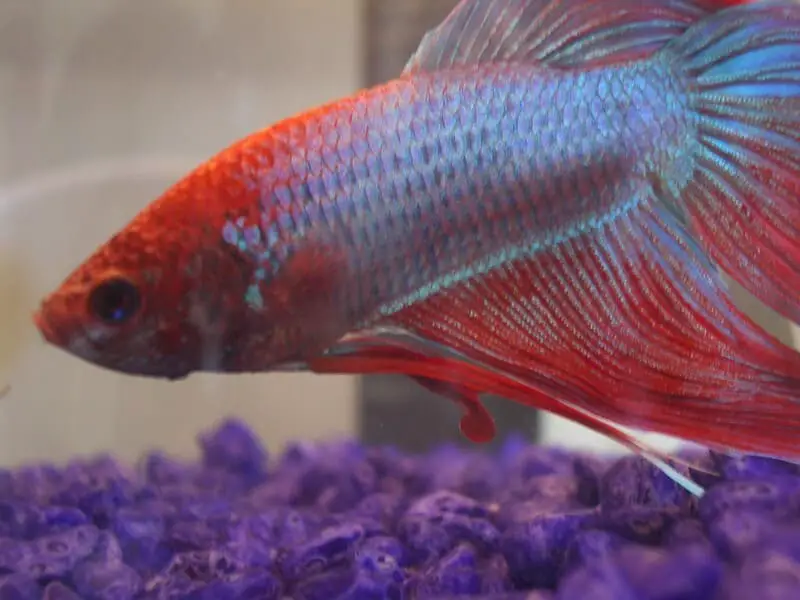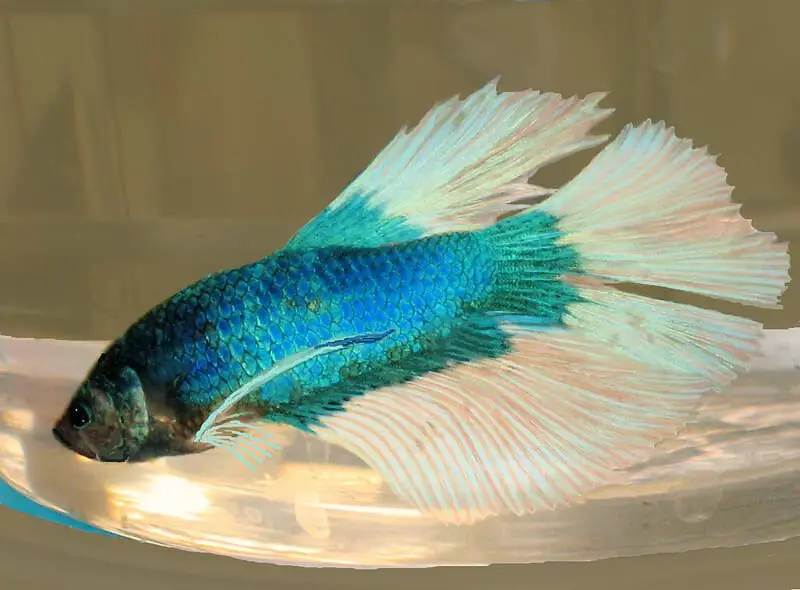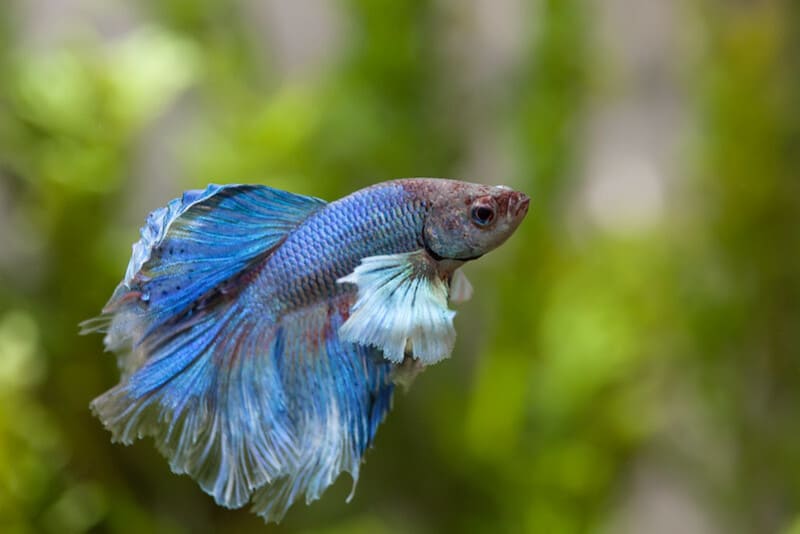Betta fish, scientifically known as Betta splendens, are among the most popular and accessible fish species for both beginner and experienced aquarists. Known for their striking colors, flowing fins, and unique personalities, bettas have captured the hearts of fish enthusiasts worldwide. One common perception is that betta fish are easy to take care of, making them an ideal choice for novice aquarium keepers. In this comprehensive guide, we will explore the ease of caring for betta fish, covering their habitat, tank requirements, feeding, health, and other essential aspects of betta fish care.

Understanding the Basics: Betta Fish Overview
Before delving into the ease of betta fish care, let’s start with a brief overview of these remarkable fish.
Origin and Natural Habitat
Betta fish originate from Southeast Asia, primarily inhabiting countries such as Thailand, Cambodia, Malaysia, and Vietnam. They are frequently found in slow-moving waters, such as rice paddies, ponds, small streams, swamps, and other shallow, vegetated environments. Understanding their natural habitat provides insights into their care requirements.
Betta Varieties
Betta splendens exhibit various color and fin variations, resulting from selective breeding. Common betta varieties include:
- Veil Tail Betta: Known for their long, drooping fins.
- Crowntail Betta: Characterized by spiky fin rays that resemble a crown.
- Halfmoon Betta: Named for their tail fin that forms a half-moon shape when fully spread.
- Delta Betta: Similar to halfmoon bettas but with a slightly less pronounced tail shape.
- Double Tail Betta: Possessing a split caudal (tail) fin.
- Plakat Betta: Recognizable by their short fins, resembling those of wild bettas.
Behavior and Personality
Betta fish are known for their individualistic and often feisty personalities. They are territorial by nature and, in the wild, would establish their territories in the dense vegetation of their habitat. In aquariums, male bettas can be aggressive toward other males and, sometimes, females. Their territorial nature can lead to displays of fin flare and occasional confrontations.
Life Span
With proper care, betta fish can live for an average of 3 to 5 years, although some individuals have been known to reach 7 years or more. Providing them with an optimal environment, nutrition, and healthcare is crucial for extending their life span.
Easy to Care For: Betta Fish
Betta fish are often considered easy to care for, and for good reason. They possess several characteristics that make them a suitable choice for aquarists looking for low-maintenance fish. Let’s explore these aspects:
1. Tank Size and Space
Betta fish do not require large aquariums. A smaller tank, such as a 5-gallon setup, is often sufficient for a single betta. This smaller tank size makes bettas ideal for individuals with limited space or those new to fishkeeping. Smaller tanks are also easier to maintain and clean.
2. Temperature Range
Betta fish are tropical fish and thrive in water temperatures ranging from 78 to 80 degrees Fahrenheit (25-27 degrees Celsius). This temperature range is relatively easy to achieve and maintain using a heater. Unlike some other fish species with specific temperature requirements, bettas are adaptable and can tolerate minor fluctuations.
3. Minimal Equipment
The equipment needed for a betta aquarium is minimal. A heater to maintain the appropriate temperature and a gentle filter to keep the water clean and clear are the primary essentials. Additionally, an aquarium lid can help prevent bettas from jumping out, especially if they are in an open-top tank.
4. Low Water Flow
Betta fish do not appreciate strong water currents. Their natural habitats consist of slow-moving waters, so a filter with adjustable flow or baffling is recommended. Slower water movement allows bettas to swim comfortably and prevents their delicate fins from being damaged.
5. Colorful and Attractive
Betta fish are incredibly eye-catching due to their vibrant colors and unique fin shapes. Their appearance adds beauty to any aquarium without the need for additional decorations or heavily planted setups. Bettas can be the focal point of a tank, making aquascaping and decor choices less demanding.
6. Low Cost
Betta fish are relatively affordable when compared to some other aquarium fish. This cost-effectiveness extends to their care, as smaller tanks require less water, fewer decorations, and less equipment. Additionally, bettas are widely available in the aquarium trade.
7. Easy to Feed
Feeding betta fish is uncomplicated. They accept a variety of foods, including high-quality betta pellets, flakes, and live or frozen foods like brine shrimp and bloodworms. Overfeeding should be avoided, and bettas can go without food for a day or two without issue.
8. Solitary Species
Bettas are solitary fish, which means they are content living on their own. This eliminates the need for social interactions and complex tank dynamics that can arise with community fish species. It also reduces the risk of compatibility issues with tank mates.
9. Hardy and Resilient
Betta fish are known for their hardiness and resilience. They can withstand minor water parameter fluctuations and are generally forgiving of occasional lapses in care. This makes them a suitable choice for beginners who are still learning about aquarium maintenance.
10. Beautiful Fin Displays
Male bettas are famous for their impressive fin displays. Their ability to spread their fins and showcase their vibrant colors is a captivating sight for aquarists. Watching a betta flare its fins can be a mesmerizing experience.
11. Air-Breathing Labyrinth Organ
Betta fish possess a unique adaptation known as a labyrinth organ. This organ allows them to breathe air from the surface in addition to extracting oxygen from the water. This feature makes bettas less dependent on dissolved oxygen levels, enhancing their ability to survive in various water conditions.

Key Care Considerations
While betta fish are generally easy to care for, there are essential aspects that aquarists should be aware of to ensure their well-being. Let’s explore these key care considerations in detail:
1. Tank Size
While smaller tanks are suitable for bettas, it’s crucial to provide them with a tank size that offers enough swimming space and environmental enrichment. A 5-gallon tank is a common recommendation for a single betta, but larger tanks, such as 10 gallons, are even better. A larger tank allows for more plant and decor options, improved water stability, and a healthier living space for your fish.
2. Water Quality
Maintaining proper water quality is essential for the health of betta fish. Regular water changes, filtration, and water testing are necessary to ensure stable and safe conditions. Bettas are sensitive to poor water quality, so monitoring ammonia, nitrites, nitrates, pH, and temperature is vital.
3. Tank Decoration
Betta fish enjoy having hiding spots and places to explore within their tank. Live or artificial aquatic plants, caves, and floating betta logs provide shelter and environmental enrichment. These features replicate the natural habitat of bettas and help reduce stress.
4. Feeding Routine
While bettas are relatively easy to feed, it’s essential to maintain a consistent feeding routine. Overfeeding can lead to health problems and water quality issues. A suitable diet includes high-quality betta pellets or flakes and a variety of live or frozen foods for enrichment.
5. Tank Maintenance
Regular tank maintenance, including water changes and filter cleaning, is essential. Keeping the tank clean prevents the buildup of waste, ammonia, and other harmful substances. Clean water helps maintain the overall health and well-being of your betta.
6. Water Parameters
Monitor and maintain appropriate water parameters for your betta aquarium. A pH level of 6.5 to 7.5, water hardness within a suitable range, and consistent temperature are crucial. Ensure that the water temperature remains in the 78 to 80 degrees Fahrenheit (25-27 degrees Celsius) range.
7. Tank Mates
While bettas are typically kept as solitary fish, some aquarists may choose to have tankmates in a community tank. If you wish to house bettas with other fish, carefully research and select suitable tankmates that are compatible in terms of temperament and water parameters. Avoid aggressive or fin-nipping species.
8. Disease Prevention
Betta fish are susceptible to specific health issues, such as fin rot, velvet, and ich. Being vigilant and proactive in disease prevention is essential. Quarantine new arrivals, maintain clean water conditions, and ensure that your betta is not exposed to stress factors.

Challenges and Potential Complications
While betta fish care is generally straightforward, it’s essential to be aware of potential challenges and complications that can arise. Understanding these issues can help you address them promptly and ensure the well-being of your betta.
Aggression
Betta fish are known for their territorial and occasionally aggressive behavior, especially among males. In community tanks, they may display aggression toward tankmates, which can lead to fin damage and stress. To mitigate aggression, provide hiding spots and space dividers in the tank.
Overfeeding
Overfeeding is a common issue in betta fish care. While bettas can be enthusiastic eaters, overfeeding can lead to obesity, constipation, and water quality problems. Stick to a regular feeding schedule and ensure that uneaten food is removed from the tank.
Poor Water Quality
Neglecting water quality maintenance can lead to poor water conditions that are harmful to betta fish. High ammonia and nitrite levels, as well as elevated nitrates, can stress and sicken your betta. Consistent water changes and efficient filtration are essential to maintain good water quality.
Tank Size Limitations
While bettas can thrive in smaller tanks, the popularity of very small betta containers has led to concerns about insufficient space for the fish. Smaller tanks can require more frequent water changes and monitoring to maintain water quality.
Disease and Health Issues
Betta fish are susceptible to various health problems, including fungal infections, parasites, and bacterial diseases. Early detection and appropriate treatment are crucial in preventing the spread of illness in your aquarium.
Compatibility Issues
Introducing tankmates to your betta’s environment can be challenging due to their territorial nature. Some species may not be compatible with bettas, leading to stress and potential conflicts. Careful selection of tankmates and observing your betta’s behavior is vital.
Fin Nipping
In community tanks, there is a risk that some tankmates may exhibit fin-nipping behavior. This can result in damage to your betta’s delicate fins. Selecting peaceful and non-fin-nipping species as tankmates can help prevent this issue.
Breeding and Aggression
Breeding betta fish can be a complicated endeavor due to the aggressive nature of betta males during the courtship and spawning process. Breeding bettas requires specific setup and care to ensure the safety of the fish involved.

Conclusion
Betta fish are widely regarded as easy to care for, making them an excellent choice for both beginner and experienced aquarists. Their minimal tank size requirements, adaptability to various water conditions, and striking appearance have made them a favorite in the world of aquarium keeping. However, it’s essential to remember that every fish species has its specific care needs and potential challenges.
Caring for betta fish involves providing them with a clean and appropriate living environment, maintaining water quality, adhering to a consistent feeding routine, and observing their behavior for any signs of stress or health issues. Understanding the unique personality and needs of betta fish will contribute to a rewarding and enjoyable fishkeeping experience, making these captivating fish a wonderful addition to your aquarium.
